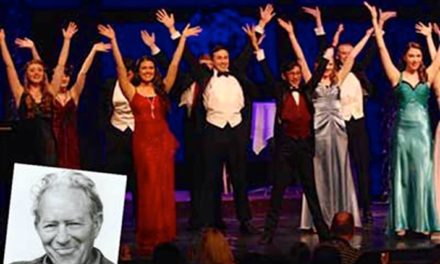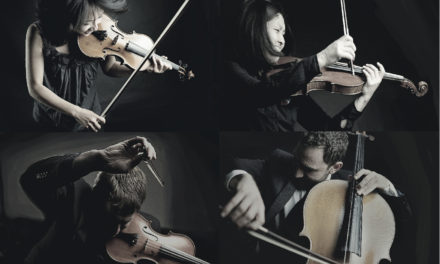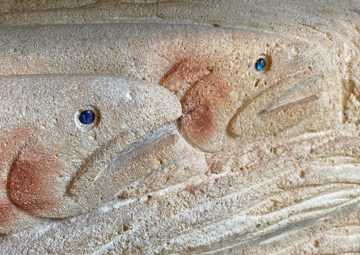By Daniel Buckwalter
(#CommonManAtTheSymphony)
Fierce storms and delicate elegance.
There were sharp turns in each direction on Feb. 13 when the Eugene Symphony Orchestra played at the Hult Center’s Silva Concert Hall, all of it well done and deserving of the multiple standing ovations from patrons.
True, it was a smaller-than-usual audience because of the adverse weather conditions, but for the hardy souls who made it, the symphony’s Thursday night performance was a rousing success.
It also was a night of finalities. There was Ludwig van Beethoven’s final piano concerto — Emperor — led with rugged tenacity and artistic touch by guest pianist Clayton Stephenson, and there was Johannes Brahms’ final symphony — Symphony No. 4 in E minor — that is a glorious culmination of his musical influences and ideas. Throw in The Spark Chasers, a short piece by British composer Hannah Kendall at the start of the program, and it was a wonderful night of music on the eve of Valentine’s Day.
Don’t forget, it also was the final night of auditions for the artistic director and conductor position at Eugene Symphony, and Taichi Fukumura stepped to the podium to lead the symphony with restrained authority and grace.
The fifth and last candidate, Fukumura is the music director of the Illinois Symphony Orchestra and had been an assistant conductor for years at the Fort Worth Symphony Orchestra in Texas. Interestingly, he’s also a finalist this season for the artistic director positions at the Delaware Symphony Orchestra and Colorado Springs Philharmonic.
No matter where he ends up, Fukumura will demonstrate composure on the podium that is pleasant to witness.
I was struck by this composure near the end of the program, in the fourth and final movement of Brahms’ Symphony No. 4, a powerful slice of music grounded in throaty bass lines.
In the ferocity of a moment during this movement, Fukumura lost his grip on the baton in his left hand. It fell straight to the floor. I would not have noticed but for Fukumura’s response. He quickly spied the baton, and with his eyes firmly set on the orchestra (and conducting furiously with his right hand), he quickly and smoothly bent straight down to pick up the baton and finish the symphony.
It’s a small thing, perhaps inconsequential, but for all the grand and painstaking preparation that artistic directors and musicians alike take on before a performance — to flesh out a vision of a performance — I am absorbed when small (or large) things go wrong. How do the artists respond?
Fukumura’s grace and professionalism was a moment that tells me that if he is appointed the Eugene Symphony’s new artistic director and conductor, the orchestra will be in fine and professionally steady hands.
The result of that search will be announced by the Eugene Symphony Orchestra this spring.











